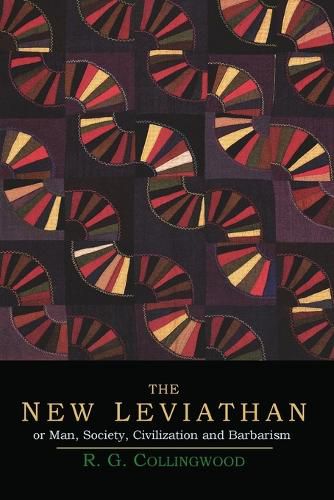Readings Newsletter
Become a Readings Member to make your shopping experience even easier.
Sign in or sign up for free!
You’re not far away from qualifying for FREE standard shipping within Australia
You’ve qualified for FREE standard shipping within Australia
The cart is loading…






2014 Reprint of 1942 Edition. Exact facsimile of the original edition, not reproduced with Optical Recognition Software. R. G. Collingwood (1889-1943) was a British philosopher and practicing archaeologist best known for his work in aesthetics and the philosophy of history. The New Leviathan, originally published in 1942, a few months before the author’s death, is the book which R. G. Collingwood chose to write in preference to completing his life’s work on the philosophy of history. It was a reaction to the Second World War and the threat which Nazism and Fascism constituted to civilization. The book draws upon many years of work in moral and political philosophy and attempts to establish the multiple and complex connections between the levels of consciousness, society, civilization, and barbarism. Collingwood argues that traditional social contract theory has failed to account for the continuing existence of the non-social community and its relation to the social community in the body politic. He is also critical of the tendency within ethics to confound right and duty.
$9.00 standard shipping within Australia
FREE standard shipping within Australia for orders over $100.00
Express & International shipping calculated at checkout
2014 Reprint of 1942 Edition. Exact facsimile of the original edition, not reproduced with Optical Recognition Software. R. G. Collingwood (1889-1943) was a British philosopher and practicing archaeologist best known for his work in aesthetics and the philosophy of history. The New Leviathan, originally published in 1942, a few months before the author’s death, is the book which R. G. Collingwood chose to write in preference to completing his life’s work on the philosophy of history. It was a reaction to the Second World War and the threat which Nazism and Fascism constituted to civilization. The book draws upon many years of work in moral and political philosophy and attempts to establish the multiple and complex connections between the levels of consciousness, society, civilization, and barbarism. Collingwood argues that traditional social contract theory has failed to account for the continuing existence of the non-social community and its relation to the social community in the body politic. He is also critical of the tendency within ethics to confound right and duty.